In this article we have explained Your Rights During an Arrest
Introduction

In India, being aware of your rights during an arrest is crucial for ensuring that these rights are respected and upheld. This article aims to provide a comprehensive understanding of the rights you have when being arrested, as per the Indian legal system.
Your Rights During an Arrest: A Guide According to Indian Law
Here are your rights explained during an arrest :-
The Right to Know the Grounds of Arrest
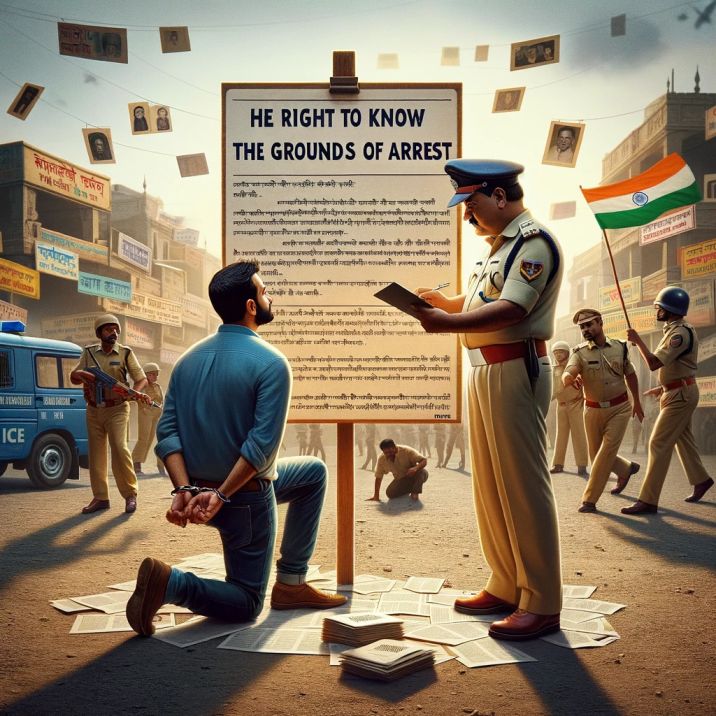
- Section 50 of the Criminal Procedure Code (CrPC): It mandates that the person arrested must be informed of the full particulars of the offense for which they are arrested or other grounds for such arrest.
- Right to Silence: Under Article 20(3) of the Indian Constitution, an arrested person has the right to remain silent as a safeguard against self-incrimination.
The Right to Legal Representation
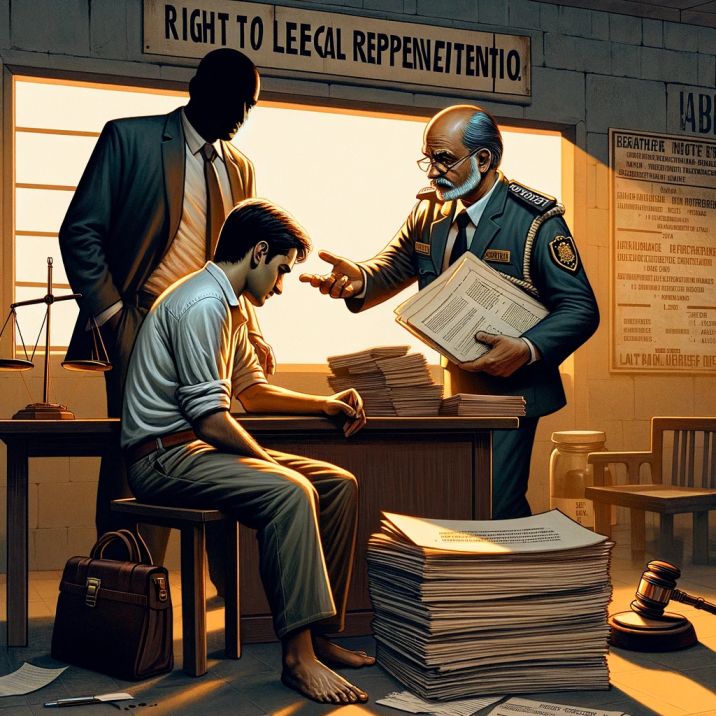
- Article 22(1) of the Indian Constitution: It guarantees that the arrested person has the right to consult and be defended by a legal practitioner of their choice.
- Section 303 of the CrPC: This provision allows the accused to be represented by a lawyer of their choice throughout the legal proceedings.
The Right to be Presented Before a Magistrate
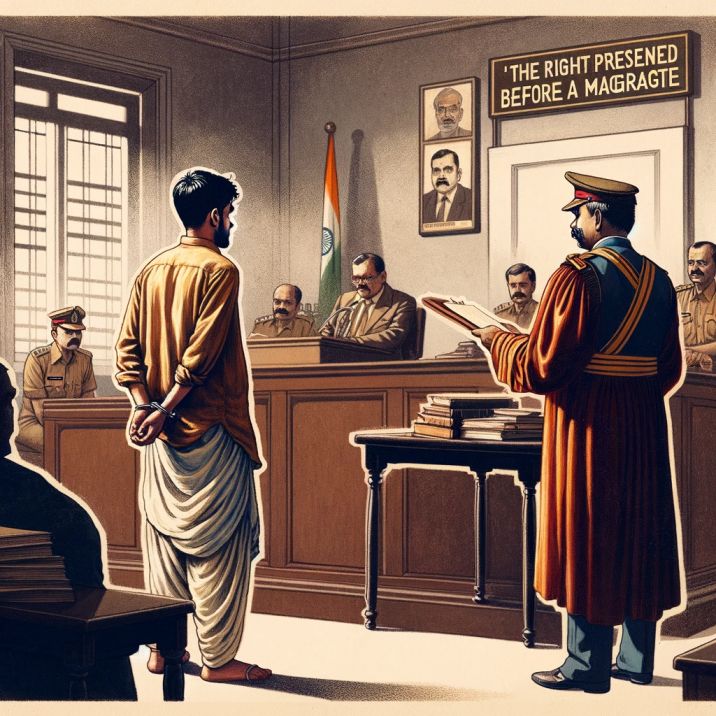
- Section 57 of the CrPC: States that an individual arrested without a warrant must be presented before a magistrate within 24 hours, excluding the time necessary for the journey.
- Article 22(2) of the Constitution: Reinforces this right by stating that every person who is arrested and detained in custody shall be produced before the nearest magistrate within a period of 24 hours of the arrest.
The Right Against Illegal Detention
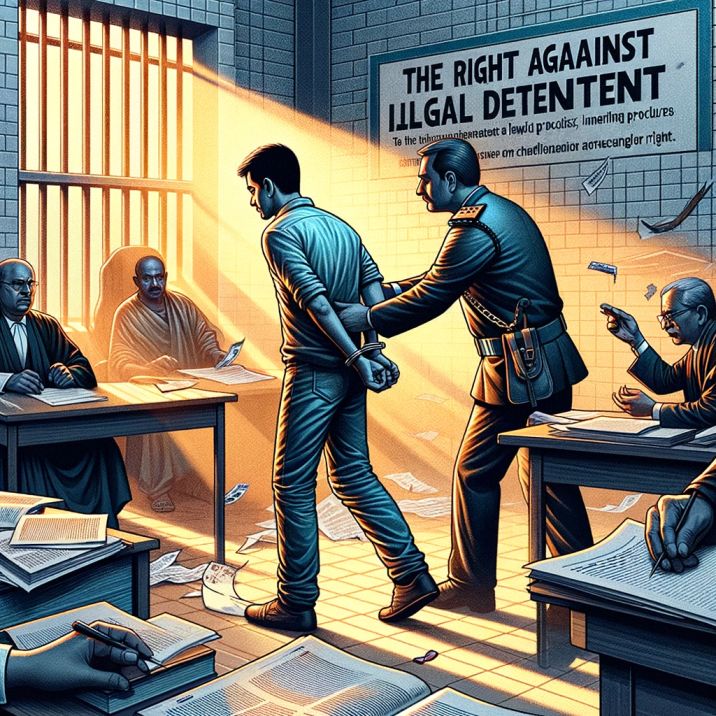
- Habeas Corpus: This is a writ petition that can be filed by the detained person or someone on their behalf when they believe the detention is unlawful.
The Right to Free Legal Aid
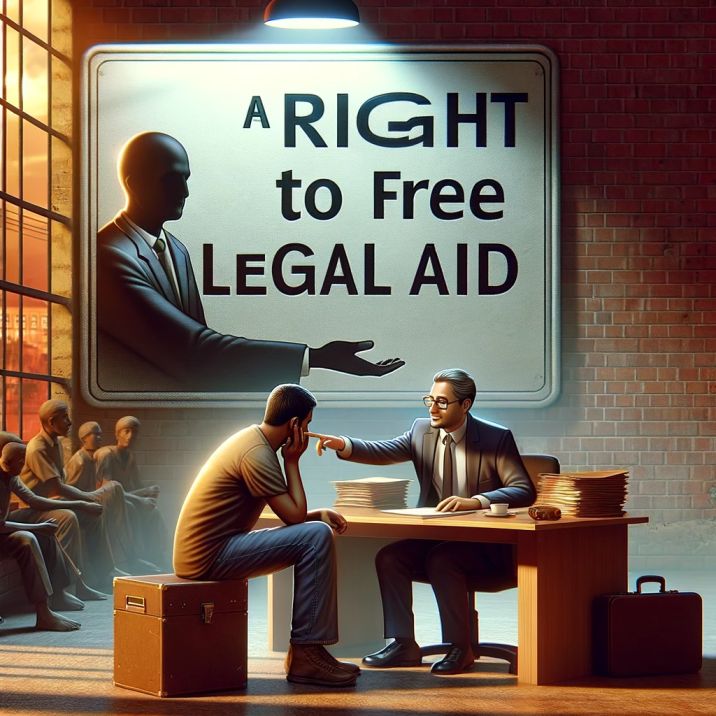
- Article 39A of the Constitution: Provides for free legal aid to the poor and weaker sections of society, ensuring that justice is not denied to any citizen due to economic or other disabilities.
- Section 304 of the CrPC: If the accused does not have sufficient means to hire a lawyer, the court must provide one for the defense at the state’s expense.
The Right to a Medical Examination
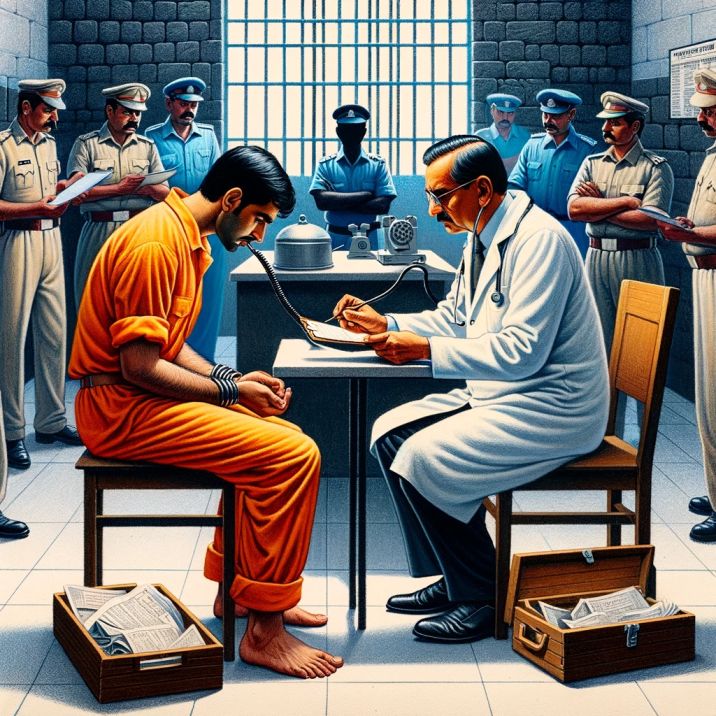
- Section 54 of the CrPC: Entitles an arrested person to a medical examination if they allege torture or ill-treatment during arrest.
The Right to Inform a Relative or Friend
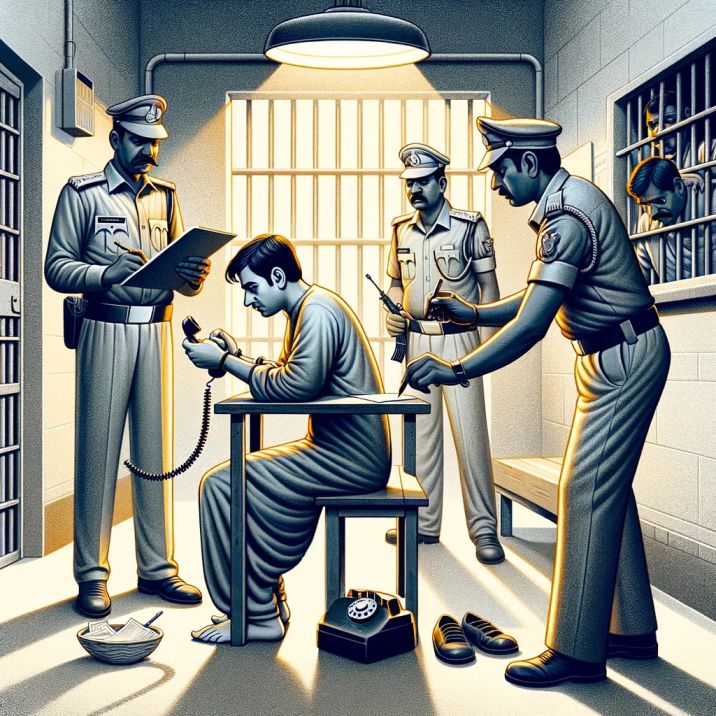
- Section 50A of the CrPC: Mandates that the person arrested must be permitted to inform a relative or friend about the arrest and the place of detention.
Conclusion
Understanding these rights is vital for anyone who finds themselves in the unfortunate situation of an arrest. It is important to remember that these rights are designed to protect the dignity and fundamental rights of the individual. If you believe that your rights have been violated during an arrest, you should seek legal assistance immediately.
Final Note
This article provides a general guide to your rights during an arrest according to Indian law. However, it is not a substitute for professional legal advice. For specific situations and detailed guidance, consulting with a qualified legal professional is highly recommended.
FAQ:-Your Rights During an Arrest
Q1: What are my rights during an arrest in India?
A1: During an arrest in India, you have several rights, including the right to remain silent, the right to legal representation, and the right to be informed of the grounds of your arrest.
Q2: Can the police arrest me without a warrant?
A2: Yes, in certain circumstances, the police can arrest you without a warrant if they have reasonable grounds to believe that you have committed a crime.
Q3: Do I have the right to know why I am being arrested?
A3: Yes, you have the right to be informed of the grounds of your arrest immediately upon arrest or as soon as possible thereafter.
Q4: Can I refuse to answer police questions during an arrest?
A4: Yes, you have the right to remain silent and cannot be compelled to answer questions during an arrest.
Q5: Do I have the right to legal representation during an arrest?
A5: Yes, you have the right to consult with a lawyer of your choice during an arrest.
Q6: Can I request a family member or friend to be present during questioning?
A6: You can request the presence of a family member or friend during questioning, but the police may not always allow it.
Q7: How long can the police detain me without filing charges?
A7: The police can detain you for up to 24 hours without filing formal charges. However, this period may be extended under certain circumstances.
Q8: Can the police search my property without a warrant?
A8: The police can search your property without a warrant if they have reasonable grounds to believe that evidence related to a crime is present.
Q9: What should I do if I am arrested?
A9: If arrested, you should remain calm, exercise your right to remain silent, and consult with a lawyer as soon as possible.
Q10: Can the police use force during an arrest?
A10: The police should use only reasonable and necessary force during an arrest. Excessive force is not allowed.
Q11: Do I have the right to medical attention if injured during an arrest?
A11: Yes, if you are injured during an arrest, you have the right to immediate medical attention.
Q12: Can I be arrested for a non-bailable offense?
A12: Yes, if you are accused of a non-bailable offense, you can be arrested, and bail may not be granted easily.
Q13: Can I be arrested without evidence of my involvement in a crime?
A13: Yes, you can be arrested based on reasonable suspicion, even if there is no direct evidence of your involvement in a crime.
Q14: Can I be arrested for a civil dispute?
A14: No, you cannot be arrested for a civil dispute. Arrests are generally made in criminal cases.
Q15: What should I do if I believe my arrest is wrongful?
A15: If you believe your arrest is wrongful, cooperate with the police, consult with a lawyer, and gather evidence to support your innocence.
Q16: Can I be arrested for a minor offense?
A16: Yes, you can be arrested for minor offenses if they are criminal in nature.
Q17: Can the police search my phone during an arrest?
A17: The police can search your phone with proper authorization, such as a warrant, or if it is necessary for the investigation.
Q18: What are my rights if I am a minor during an arrest?
A18: Minors have similar rights during an arrest, including the right to remain silent and consult with a lawyer.
Q19: Can I be arrested based on a complaint by someone?
A19: Yes, the police can arrest you based on a complaint, but they must have reasonable grounds to do so.
Q20: Can I be arrested for being in possession of a small amount of drugs?
A20: Yes, possession of even a small amount of illegal drugs can lead to arrest and prosecution.
Q21: Can I be arrested at my workplace?
A21: Yes, you can be arrested at your workplace if the police have a valid reason and necessary authorization.
Q22: Can I be arrested for participating in a protest or demonstration?
A22: Peaceful participation in a protest or demonstration is generally not a ground for arrest, but disturbances or unlawful activities may lead to arrest.
Q23: Can I be arrested for a traffic violation?
A23: You can be detained for a traffic violation, but it is not considered an arrest unless it involves a more serious offense.
Q24: Can the police detain me overnight?
A24: Yes, the police can detain you overnight if necessary for the investigation, but they should inform your family or a friend.
Q25: Can I be arrested without being read my Miranda rights?
A25: In India, there is no equivalent of the Miranda rights; however, you still have the right to remain silent.
Q26: Can the police arrest me for refusing a breathalyzer test?
A26: While refusing a breathalyzer test may have legal consequences, it alone is not a ground for arrest.
Q27: Can I be arrested for contempt of court?
A27: Yes, you can be arrested for contempt of court if you violate court orders or disrupt court proceedings.
Q28: Can I be arrested for posting on social media?
A28: Posting on social media alone is generally not a ground for arrest unless it involves hate speech, incitement to violence, or other illegal activities.
Q29: Can I be arrested during a raid at my residence?
A29: You can be arrested during a raid if there is evidence or reasonable suspicion of your involvement in criminal activities.
Q30: Can the police arrest me based on an anonymous tip?
A30: The police can consider an anonymous tip as a lead, but they must gather sufficient evidence to make an arrest.
Q31: Can I be arrested for not paying debts?
A31: No, you cannot be arrested for failure to pay debts. Debt recovery is a civil matter.
Q32: Can I be arrested for failing to appear in court?
A32: Yes, if you fail to appear in court when summoned, a warrant for your arrest may be issued.
Q33: Can the police search my vehicle during an arrest?
A33: The police can search your vehicle if they have reasonable suspicion that it contains evidence of a crime.
Q34: Can I be arrested for being in a prohibited area?
A34: Yes, being in a prohibited area can lead to arrest if it violates the law.
Q35: Can I be arrested for obstructing the police?
A35: Yes, obstructing the police in the performance of their duties can lead to arrest.
Sources:-












